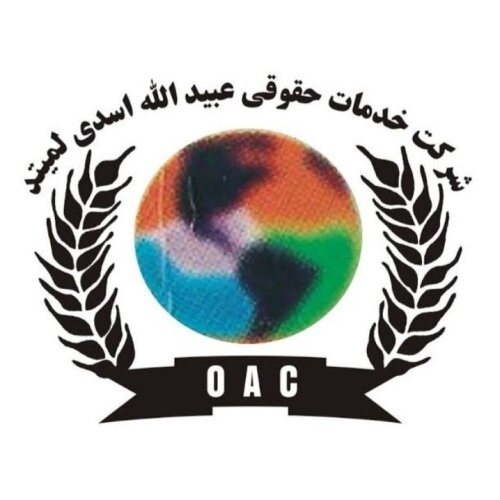Best Antitrust Litigation Lawyers in Afghanistan
Share your needs with us, get contacted by law firms.
Free. Takes 2 min.
Or refine your search by selecting a city:
List of the best lawyers in Afghanistan
About Antitrust Litigation Law in Afghanistan
Antitrust litigation law in Afghanistan concerns the regulation of businesses to promote fair competition and prevent anti-competitive practices. While Afghanistan's legal system is still developing in this area, the government has made efforts to draft and enforce measures against monopolistic behaviors, cartels, price-fixing, and other forms of unfair business practices. Antitrust litigation typically involves legal proceedings where individuals, companies, or the government challenge anti-competitive conduct in the marketplace. The Ministry of Commerce and Industries and the Afghanistan Competition Authority play significant roles in overseeing these matters under current laws.
Why You May Need a Lawyer
There are several situations where seeking legal advice in the field of antitrust litigation is crucial in Afghanistan. Businesses or individuals may encounter issues such as:
- Being accused of engaging in anti-competitive practices
- Facing investigations by regulatory authorities over alleged monopoly or cartel activities
- Suffering from unfair competition due to another company’s monopolistic behavior
- Experiencing price-fixing or market allocation by competitors
- Planning mergers or acquisitions that might raise antitrust concerns
- Pursuing damages resulting from anti-competitive conduct by others
- Needing to ensure compliance with competition laws during business operations
A lawyer specializing in antitrust litigation can help clarify your legal position, represent your interests during investigations or court proceedings, and ensure your activities comply with current regulations.
Local Laws Overview
The primary framework for antitrust regulation in Afghanistan includes competition-promoting laws and various related statutes. Key aspects include:
- The Law on Promotion and Protection of Competition, which forbids abuses of dominant positions, restricts cartels and collusion, and regulates mergers with competitive impacts
- Regulatory oversight by the Afghanistan Competition Authority, responsible for investigation and enforcement of anti-competition cases
- Prohibition of agreements and practices that fix prices, limit production, or allocate markets
- Legal consequences for violating competition laws, such as administrative penalties, fines, or injunctions
- The right for aggrieved parties to file complaints and seek remedies for anti-competitive conduct
- Procedural requirements for merger notifications and review for large business combinations
It is important to note that Afghanistan’s competition laws are relatively new and subject to development as economic and legal institutions evolve.
Frequently Asked Questions
What is antitrust litigation?
Antitrust litigation involves legal actions taken to address alleged violations of competition laws, such as monopolistic practices, price-fixing, or unfair market restrictions.
Who enforces antitrust laws in Afghanistan?
The Afghanistan Competition Authority and the Ministry of Commerce and Industries are primarily responsible for enforcing antitrust laws in Afghanistan.
What actions are considered anti-competitive under Afghan law?
Common anti-competitive actions include forming cartels, fixing prices, abusing a dominant position, restricting production, or engaging in unfair trade practices that harm competition or consumers.
Can a business be penalized for violating competition laws in Afghanistan?
Yes. Businesses found guilty of anti-competitive conduct can face penalties, including fines and administrative sanctions. In some cases, the government may also order corrective actions.
How does the government investigate suspected violations?
The relevant authorities investigate based on complaints, market studies, or their own initiative. This may involve gathering evidence, questioning businesses, and reviewing documents.
What should I do if my business is under investigation for anti-competitive conduct?
Seek legal advice immediately. A qualified lawyer can help you understand your rights, prepare your defense, and represent you in dealings with authorities.
Can individuals or businesses sue for damages related to anti-competitive practices?
Yes. Parties harmed by anti-competitive conduct may file claims for damages in the courts or through administrative procedures.
Is merger approval required in Afghanistan?
Certain mergers or business combinations must be reviewed and approved by the competition authority if they are likely to have a significant impact on market competition.
How can I ensure my business complies with antitrust laws?
Regularly review your business practices, train employees on competition law, and consult with legal professionals before entering into agreements or business combinations that could raise competition concerns.
Are there any exemptions to the antitrust laws?
In specific sectors or under certain conditions, exemptions may apply. Legal advice is essential to determine if an exemption applies to your case.
Additional Resources
If you need more information or assistance regarding antitrust litigation in Afghanistan, the following resources can be helpful:
- Afghanistan Competition Authority - The primary government body responsible for enforcing competition laws
- Ministry of Commerce and Industries - Provides guidance on competition policy and business regulations
- Kabul Chamber of Commerce and Industries - Offers industry support and may provide legal referrals
- Afghan Bar Association - A source for finding qualified lawyers specializing in competition and antitrust law
- International organizations such as the World Bank and the Asian Development Bank, which may provide policy support and publications on Afghanistan's legal environment
Next Steps
If you believe you are involved in a matter related to antitrust litigation or suspect that your rights have been affected by anti-competitive behavior, consider the following steps:
- Document all relevant information and evidence about the suspected anti-competitive conduct
- Contact a qualified lawyer with experience in antitrust or competition law in Afghanistan
- Consult with relevant governmental authorities for preliminary guidance, especially if you are considering filing a complaint or responding to an investigation
- Stay informed of any legal changes or new developments in Afghanistan’s competition laws
- Consider attending legal seminars or training on antitrust law to better understand your obligations and rights
Obtaining professional legal advice as early as possible can help protect your interests and ensure compliance with Afghanistan's evolving competition regulations.
Lawzana helps you find the best lawyers and law firms in Afghanistan through a curated and pre-screened list of qualified legal professionals. Our platform offers rankings and detailed profiles of attorneys and law firms, allowing you to compare based on practice areas, including Antitrust Litigation, experience, and client feedback.
Each profile includes a description of the firm's areas of practice, client reviews, team members and partners, year of establishment, spoken languages, office locations, contact information, social media presence, and any published articles or resources. Most firms on our platform speak English and are experienced in both local and international legal matters.
Get a quote from top-rated law firms in Afghanistan — quickly, securely, and without unnecessary hassle.
Disclaimer:
The information provided on this page is for general informational purposes only and does not constitute legal advice. While we strive to ensure the accuracy and relevance of the content, legal information may change over time, and interpretations of the law can vary. You should always consult with a qualified legal professional for advice specific to your situation.
We disclaim all liability for actions taken or not taken based on the content of this page. If you believe any information is incorrect or outdated, please contact us, and we will review and update it where appropriate.
Browse antitrust litigation law firms by city in Afghanistan
Refine your search by selecting a city.












